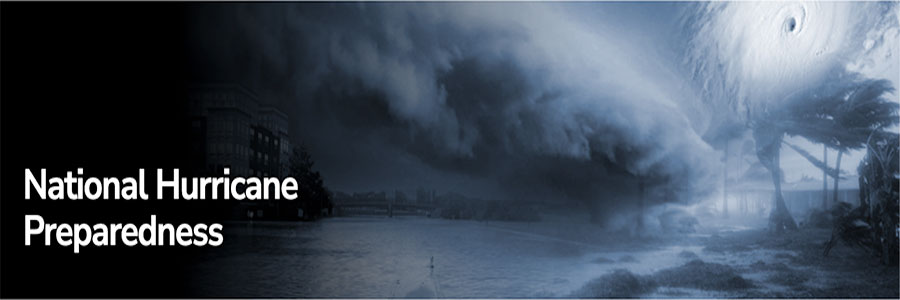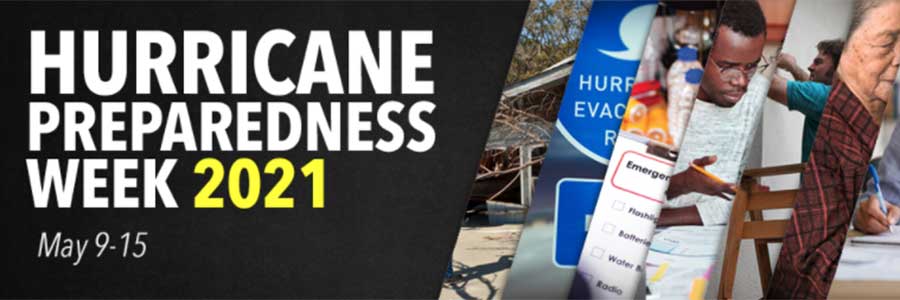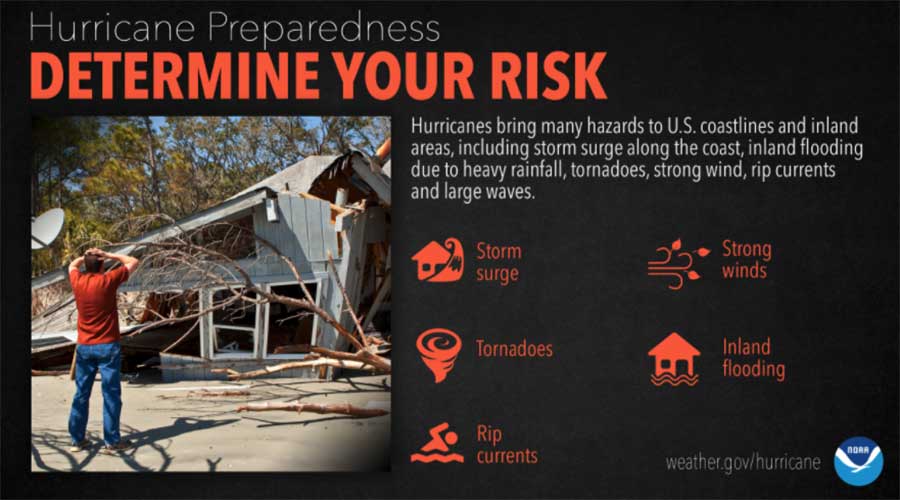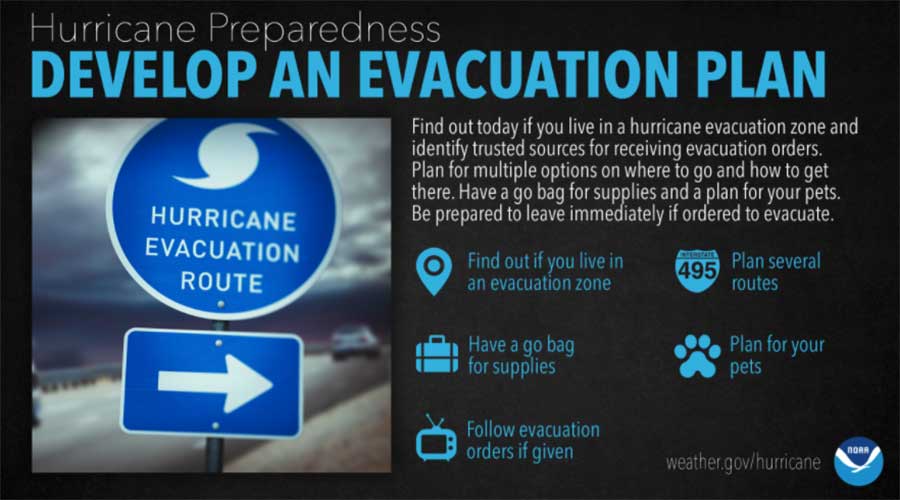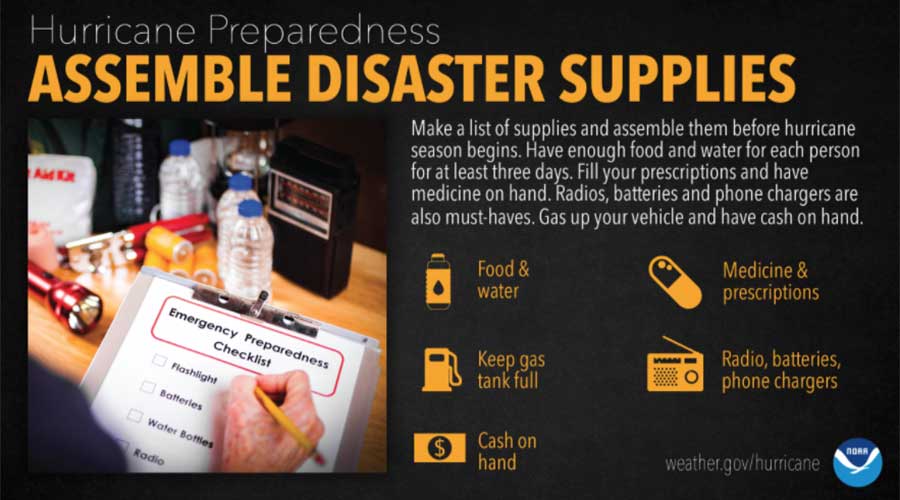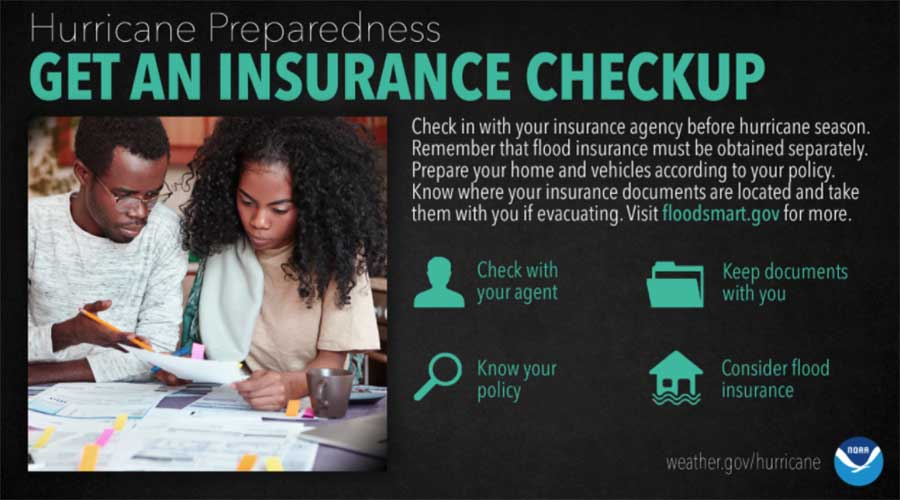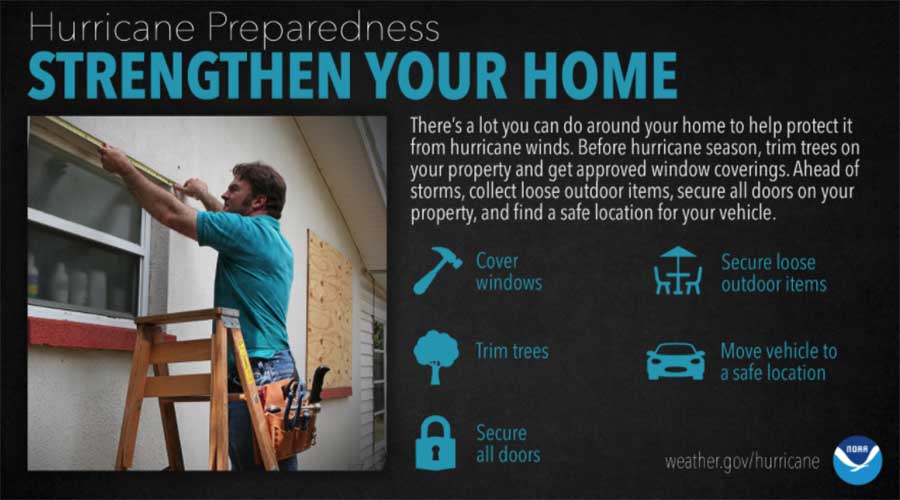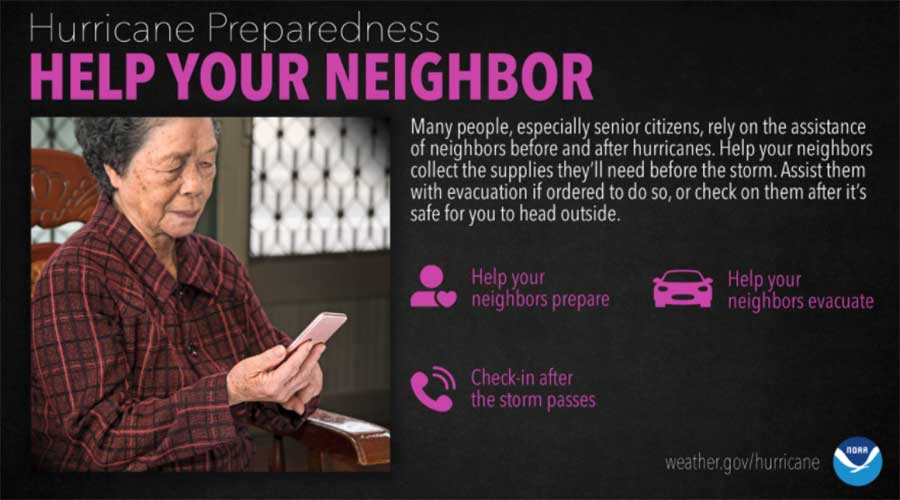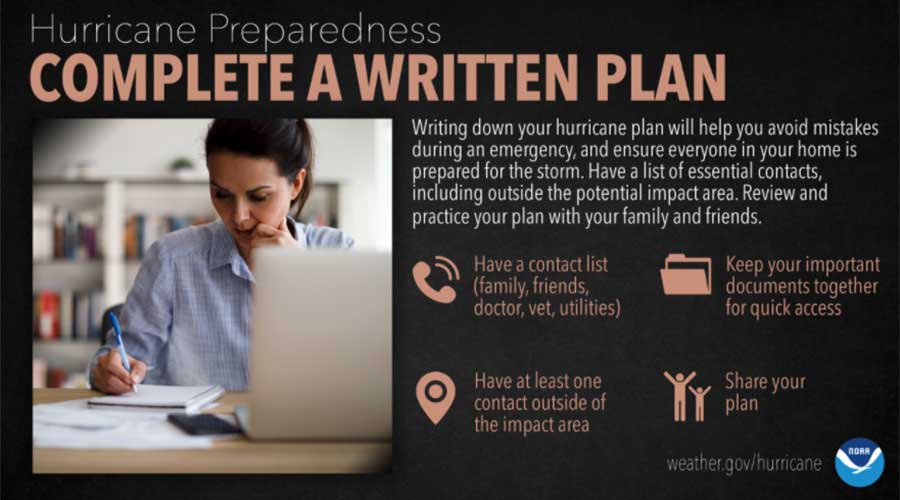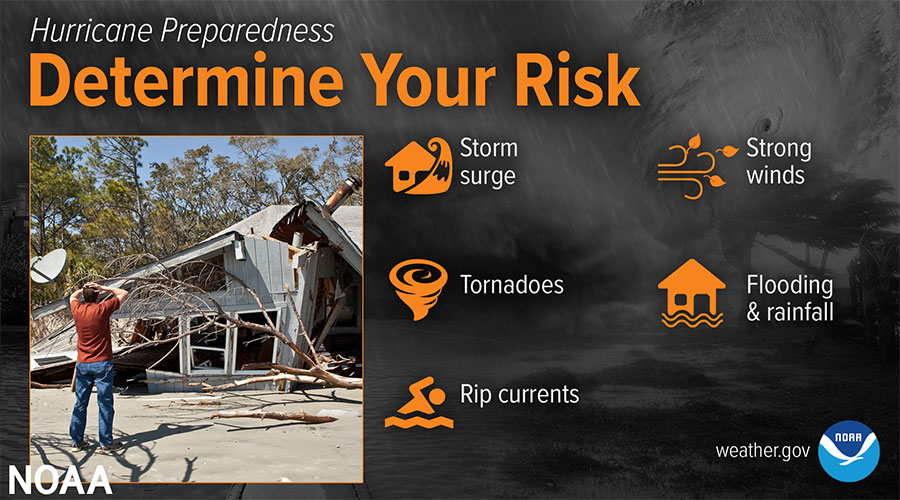
Find out today what types of wind and water hazards could happen where you live, and then start preparing how to handle them. Hurricanes are not just a coastal problem. impacts from wind and water can be felt hundreds of miles inland, and significant impacts can occur regardless of the storm’s strength. Know if you live in an area prone to flooding and if you’re safe to remain in your home.
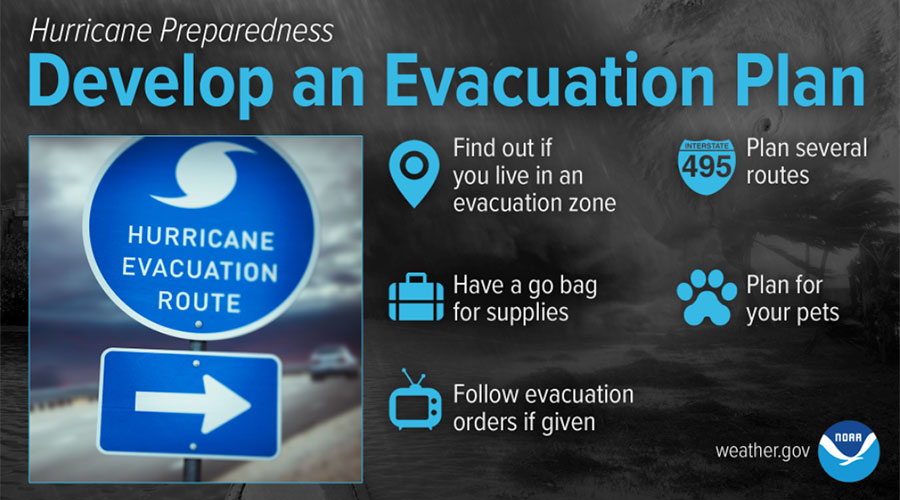
Find out if you live in a hurricane evacuation zone. You may also need to leave if you live in a flood prone area or in a mobile home outside a hurricane evacuation zone. Now is the time to begin planning where you would go and how you would get there.
You do not need to travel hundreds of miles. Your destination could be a friend or relative who lives in a well built home outside flood prone areas. Remember, your safest place may be to remain home. Be sure to account for your pets in your plan.
As hurricane season approaches, listen to local officials on questions related to how you may need to adjust any evacuation plans based on the latest health and safety guidelines from the CDC and your local officials.
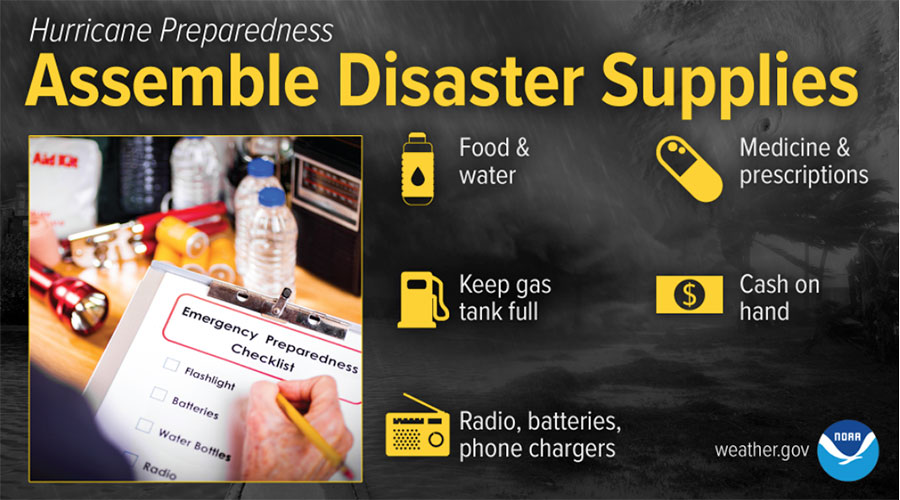
Whether you’re evacuating or sheltering-in-place, you’re going to need supplies not just to get through the storm but for the potentially lengthy and unpleasant aftermath. Have enough non-perishable food, water and medicine to last each person in your family a minimum of 3 days (store a longer than 3-day supply of water, if possible). Electricity and water could be out for at least that long. You’ll need extra cash, a battery-powered radio and flashlights. You may need a portable crank or solar-powered USB charger for your cell phones.
If you need to go to a public shelter, follow health guidelines from your local officials and the CDC.
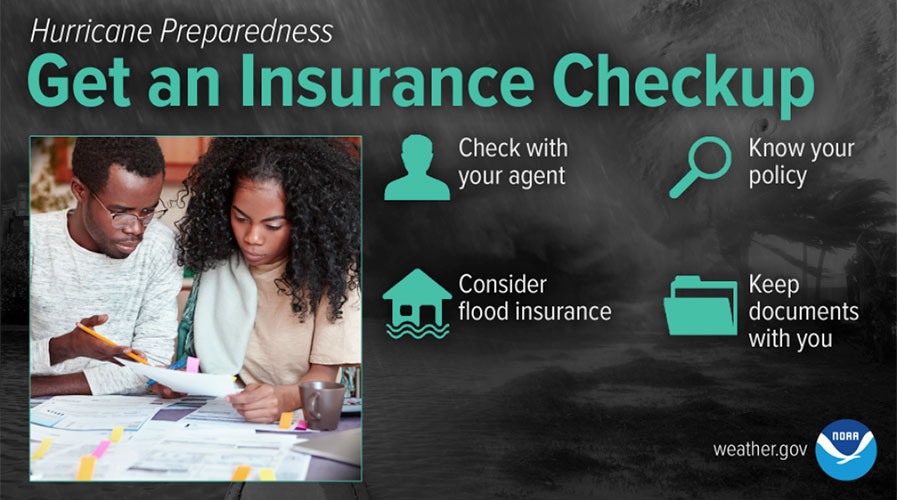
Call your insurance company or agent and ask for an insurance check-up to make sure you have enough insurance to repair or even replace your home and/or belongings. Remember, home and renters insurance doesn’t cover flooding, so you’ll need a separate policy for it.
Flood insurance is available through your company, agent, or the National Flood Insurance Program at floodsmart.gov. Act now, as flood insurance requires a 30-day waiting period.
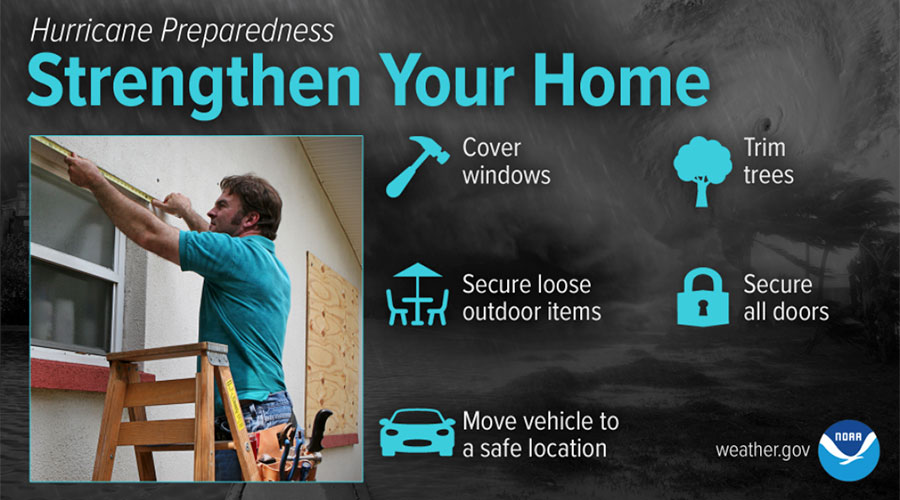
Whether you’re evacuating, or planning to ride out the storm in your home, make sure it is in good repair and up to local hurricane building code specifications to withstand wind impacts. Many retrofits are not as costly or time consuming as you may think.
Have the proper plywood, steel or aluminum panels to board up the windows and doors. Remember, the garage door is the most vulnerable part of the home, so it must be able to withstand the winds.
If you’re a renter, work with your landlord now to prepare your home for a storm.
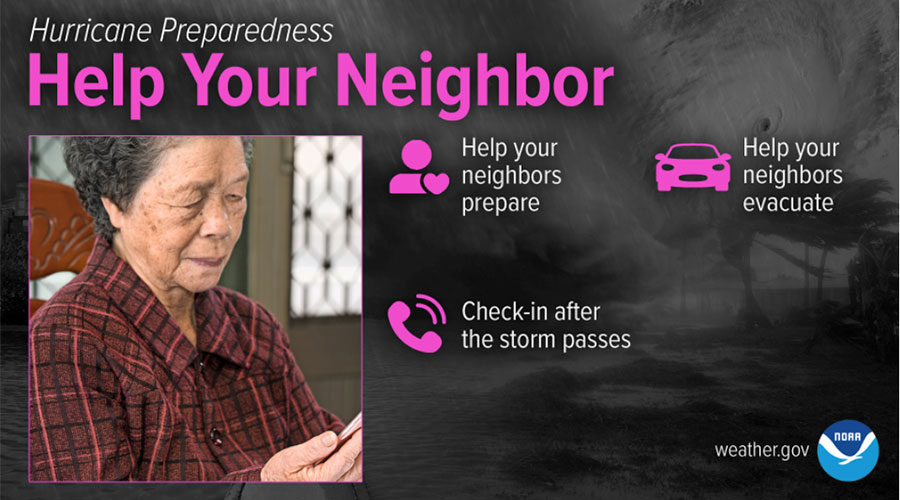
Many people rely on their neighbors before and after a disaster, and there are many ways you can help them. Learn about all the different actions you and your neighbors can take to prepare and recover from the hazards associated with hurricanes.
Start the conversation now with these Neighbor Helping Neighbor strategies but remember you may need to adjust your preparedness plans based on the latest health and safety guidelines from the CDC and your local officials.
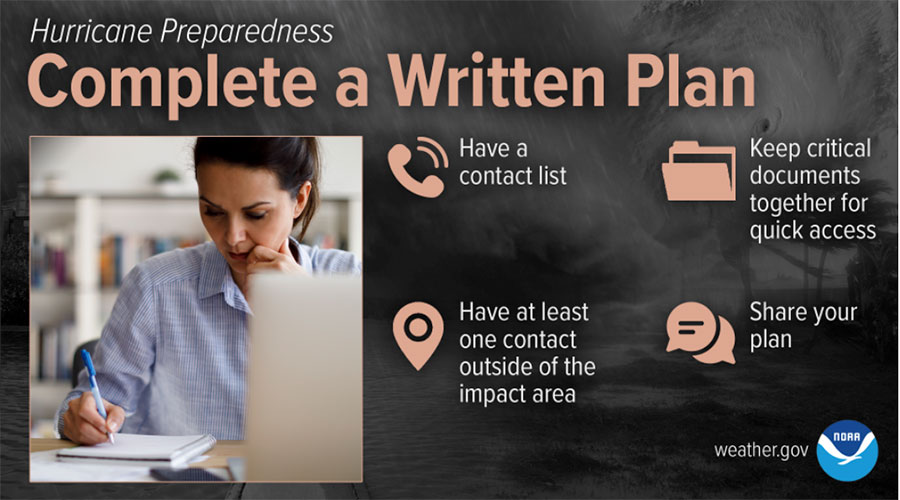
The time to prepare for a hurricane is before the season begins, when you have the time and are not under pressure. If you wait until a hurricane is on your doorstep, the odds are that you will be under duress and will make the wrong decisions.
Take the time now to write down your hurricane plan. Know who issues evacuation orders for your area, determine locations on where you will ride out the storm, and start to get your supplies now. Being prepared before a hurricane threatens makes you resilient to the hurricane impacts of wind and water. It will mean the difference between being a hurricane victim or a hurricane survivor.
